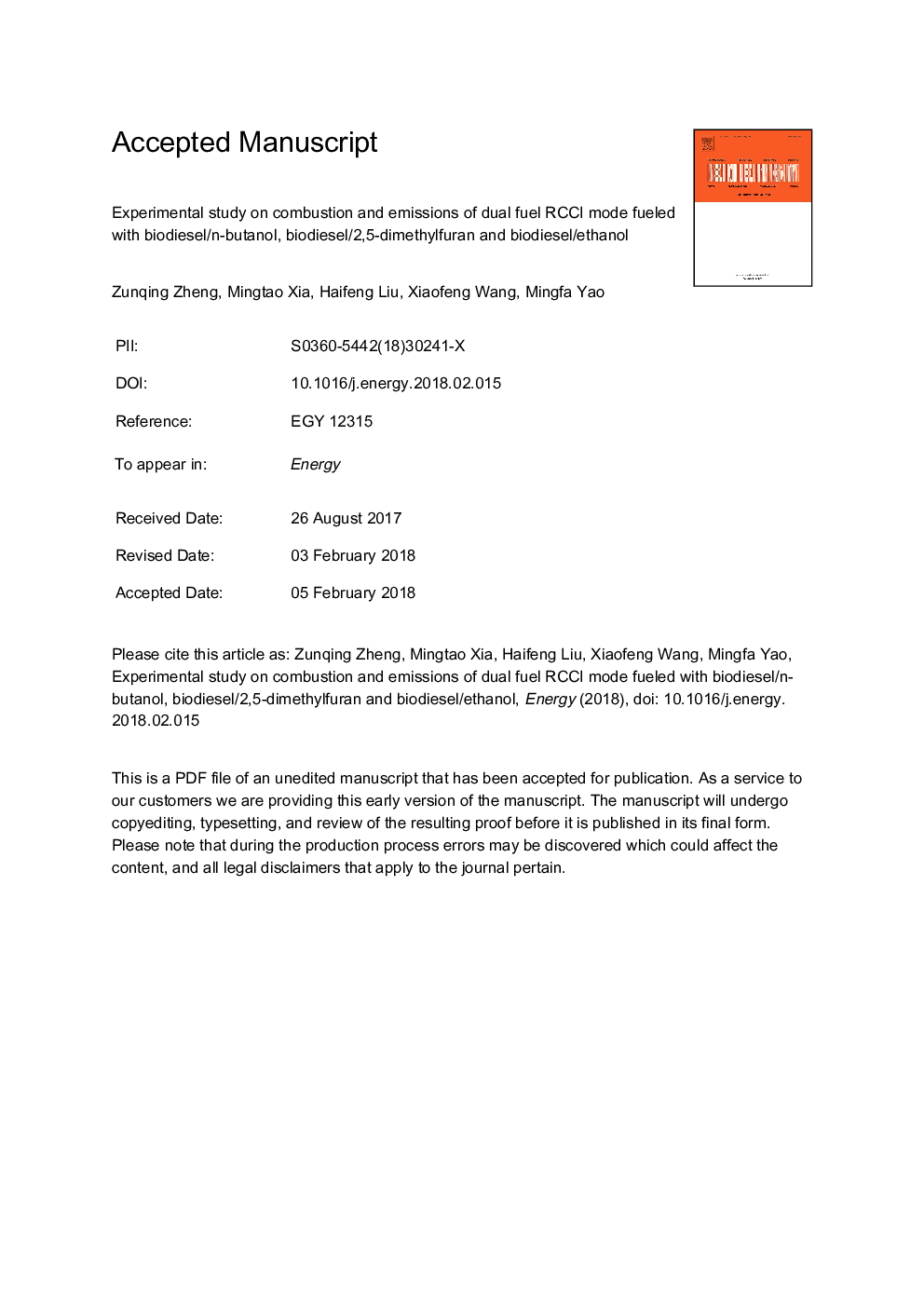| Article ID | Journal | Published Year | Pages | File Type |
|---|---|---|---|---|
| 8072056 | Energy | 2018 | 33 Pages |
Abstract
To investigate the effect of biofuel properties on RCCI combustion and emissions, the experimental study was conducted on a single-cylinder diesel engine. Three low reactivity oxygenated biofuels, i.e. n-butanol, 2,5-dimethylfuran (DMF) and ethanol were injected in the intake port and biodiesel was directly injected into the cylinder to realize RCCI operation. Results show that the heat releases are changed from two-stage to single-peak with the increase of EGR rates. Biodiesel/ethanol presents 1 °CA longer ignition delay than the others, which indicates latent heat has significant effect on ignition delay. Under different injection timings, the trends of combustion and emissions are similar for three RCCI modes, meantime, biodiesel/ethanol shows greater potential on reducing NOx and soot emissions simultaneously (soot<0.3 FSN and NOx<1.5â¯g/kWh at SOI of â8 °CA ATDC) and biodiesel/n-butanol presents the highest ITE of 47.5%, and shows remarkable advantages on improving indicated thermal efficiency of RCCI combustion. Employing 80% fraction of biofuels by port injection results in lower soot emissions (below 0.3 FSN) and higher CO and HC emissions than neat biodiesel, but relatively high cetane number of n-butanol limits the maximum applying fraction. The increase of load highlights the differences on combustion and emissions among three RCCI modes.
Keywords
Related Topics
Physical Sciences and Engineering
Energy
Energy (General)
Authors
Zunqing Zheng, Mingtao Xia, Haifeng Liu, Xiaofeng Wang, Mingfa Yao,
